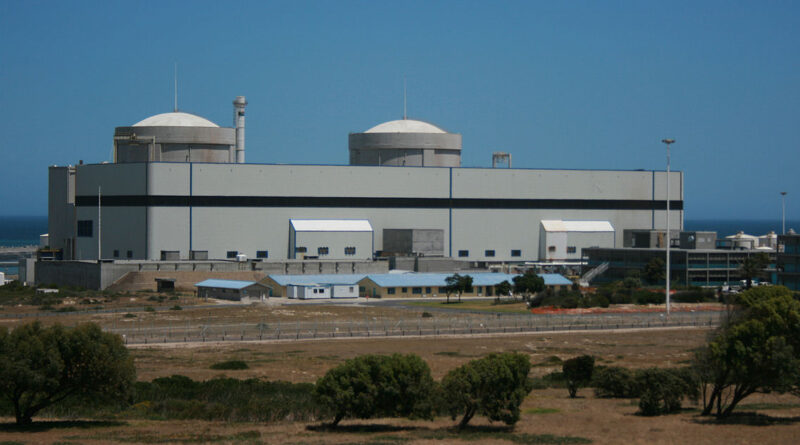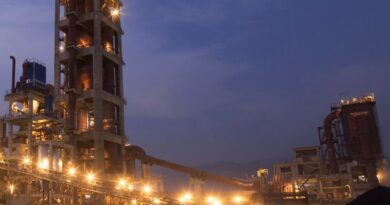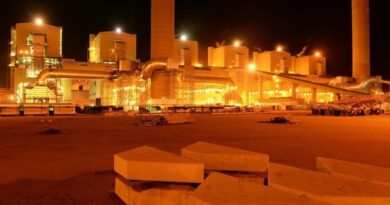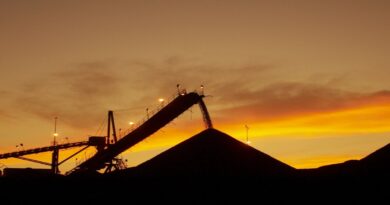New nuclear power plant in SA unlikely this decade
Africa’s only commercial nuclear power plant houses two 900 MW reactors, located at Koeberg, near Cape Town in South Africa. Both reactors started operating in the mid-1980s. In 2019, they generated 13.6 TWh representing 6.7 percent of the country’s power, an increase of 2 percentage points over the previous year, but down from the historical maximum of 7.4 percent in 1989.
According to the World Nuclear Industry Status Report (WNISR2020), released on 24 September 2020, The reactors had been given permission to operate for 40 years and are now planning a series of replacement and upgrading work to extend their operational lifetimes. The decision to replace all six steam generators of the two units was taken in 2010.
AREVA was awarded the contract in 2014 and a lengthy legal battle with competitor Westinghouse followed. In 2018, the Parliament began investigations into the actions of several Eskom officials relating to a number of issues, including the steam generator contracts.
The Parliament committee report concluded that the former chairmen and executives of Eskom “reasonably ought to have known or suspected” that their failure to report the flouting of governance rules relating to some contracts, including those relating to the steam generator replacement “may constitute criminal conduct”.
The plant has been operating at low temperatures to reduce the pace of corrosion in the steam generator tubes. The replacement of the steam generators is scheduled to be carried out in 2021.
The state-owned South African utility and Koeberg operator Eskom had considered acquiring additional large PWRs and had made plans to build 20 GW of generating capacity by 2025. However, in November 2008, Eskom scrapped an international tender because the Government was unwilling to give the loan guarantees demanded by potential financiers, and credit-rating agencies threatened downgrades.
In 2011, the Department of Energy (DOE) published an Integrated Resource Plan (IRP) for future power generation investments that contained a 9.6 GW target, or six nuclear units, by 2030. Startup would have been one unit every 18 months beginning in 2022.
The WNISR2020 report says “The total price of the project was estimated to be in the range of US$37-100 billion.”
In April 2017, the Western Cape division of South Africa’s High Court ruled in favour of two NGOs, the Southern African Faith Communities Environment Institute (SAFCEI) and Earthlife Africa, in their cases against the Government; halting a December 2015 decision to proceed with the procurement of 9.6 GW of new nuclear capacity, and annulling the nuclear co-operation agreements that the Government had signed with Russia, South Korea and the United States.
The court concluded that the lack of public consultation on the decisions “rendered its decision procedurally unfair” and breached its statute. In May 2017, the Government announced that it would not appeal the court. The 2018 Goldman environmental prize was awarded to grassroots activists Makoma Lekalakala and Liz McDaid for the successful legal challenge in this case.
In January 2018, future President Cyril Ramaphosa said in Davos that “we have no money to go for major nuclear plant building.” Even the chief financial officer of Eskom stated: “I can’t go and commit to additional expenditure around a nuclear program.”
In August 2018, the Government published its draft IRP 2018, in which new nuclear is absent in the period up to 2030.
However, in October 2019, in the updated IRP document, nuclear power was described as a “no regret option”. The document stated that due to expected decommissioning of 24 GW of coal capacity, it was proposed to implement nuclear “at an affordable pace and modular scale” and “at a pace and scale the country can afford”.
In June 2020, the Government issued a “Request for Information” (RfI) to enable an assessment of the potential reactor technologies to “be considered” under a future newbuild program that might encompass both conventional reactors and small modular reactors. The vendors were expected to supply technical and financial information by 15 September 2020.
The WNISR2020 report concludes that “It is not clear whether the RfI will be followed by a Request for Proposals, i.e. a formal, competitive tender, and it is unlikely that a further nuclear power plant will be started up in South Africa this decade.”




